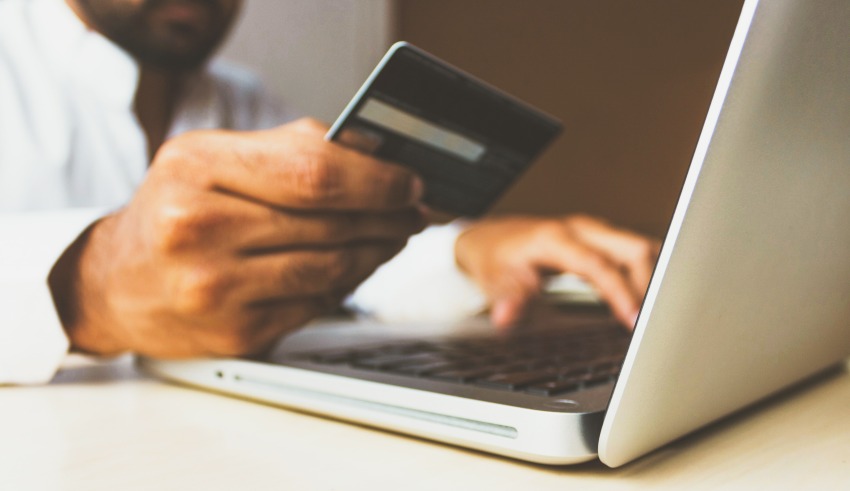
Be honest. When you shop online in 2023, do you now do so with a certain level of complacency? Are you being as vigilant as you know you should be? Or has the act of shopping online become so commonplace that you don’t think twice before you hit buy at a chosen store? Our increasing use of the internet to buy items, goods, and services is pretty mindblowing in terms of the rise and frequency of the format.
It’s something we now do without thinking twice but was, perhaps a decade or more ago, an act that was far less prevalent. 70% of Americans regularly shop online, and there were a massive 268 million digital buyers in 2022 alone, and it’s easy to see why this number is always on the rise.
Shopping online affords us many benefits. The ease with which we can access what we need, wherever we are, is one aspect that leads us back again and again; another is the fact that the marketplace we can now enjoy is pretty much infinite, and on the whole, the savings made by companies that operate online (due to the reduced overhead costs) find there way to us, as consumers.
But there are issues to overcome and not ignore. Staying safe online is something we should all aspire to, and the tricks and systems used by scammers are becoming more and more complex just as the number of ways to protect ourselves also increases.
So, how can you shop online while staying one step ahead of the crooks who are keen to steal your data, your money, and even, on occasion, your identity? Here are a few pointers.
Check Out Reliable Reviews
A surefire way to check up on a new online store is to read reviews posted at comparison sites. These tend to be more reliable, honest, and genuine than random comments posted on social media.
Additionally, those sites that offer top 10 lists for specific online shopping niches give you the added bonus of pointing you in the direction of sites/stores and services that are worthy of your custom.
Payment Methods
Try to avoid using debit cards when you shop online, as these are the types of payment methods that scammers love to get access to. Preferably use credit cards, as these will come with some level of payment protection.
If the online store you are using accepts e-wallets, like PayPal, then this is even better as these are also well protected (usually with two-step authentication required) and means a scammer won’t get to your personal bank accounts.
Desktop Virus and Security Protection
A lot of us prefer to use our personal home computers for our online shopping, perhaps because at work you feel it would be wrong to conduct such purchases and using your mobile might present you with other issues, however, if you are going to your desktop it’s imperative you have working anti-virus and security protection.
Always check your anti-virus system is up to date and working, as many of us forget to renew subscriptions and then find out at our cost that we have been shopping online with absolutely no adequate protection in place.
Use a Variety of Passwords
Don’t make things easier for fraudulent individuals to hack your accounts, use a variety of passwords and avoid obvious ones. Yes, it’s tempting to repeatedly use easy-to-remember codes, especially as most of us have dozens of accounts and passwords to retain in our memories.
Ideally, you could look to use a password manager, which will offer you additional protection while also assisting you in remembering all of your various passwords.
HTTPS and Padlock Symbol
Avoid any site that does not have the HTTPS prefix, in other words, those which are simple HTTP, and look out for the padlock symbol in the URL address bar. These indicate that there is some level of security in place offered by the site you are visiting, and that is the least you should expect.
Never Click On Unsolicited Messages and Emails
We are all bombarded by unwanted or unrequested messages and emails, most of which are genuine but are just not of interest, but some are legitimate attempts to secure critical information and data. If you receive anything of this nature, do not read the messages or access them, and if you do happen to do so, never click on the connected link.
Use a VPN If Shopping Online Via Your Mobile Device
VPNs offer you additional encryption protection that can help keep you secure, especially if you are on the go and accessing wi-fi services that you don’t regularly use. They can also help you access sites and services from other regions, which may be geo-blocked in your current location.
Use One Device and Stick With Trusted Websites
Make things more challenging for scammers; only use one terminal or device when shopping online, as doing so then reduces the chances of a breach. Secondly, try to stick with established websites and services, as they will offer you more robust protection than seemingly random online stores that may well be less secure.
These are just a few of the easy-to-follow tips that should help keep you safe from the most common forms of online scams. At the very least, you should follow these religiously, as failing to do so simply makes things easier for scammers to wreak their havoc upon you.